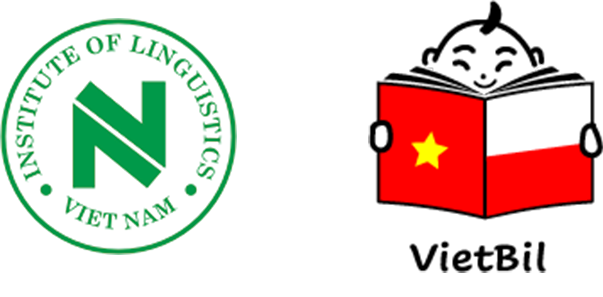About
Welcome to the website of the project “Early language development of Vietnamese children living in Poland”
 The main goal of the project is the assessment of the linguistic environment, competencies, and in the future, educational needs of bilingual children living in Poland.
The main goal of the project is the assessment of the linguistic environment, competencies, and in the future, educational needs of bilingual children living in Poland.
The main goal of the first stage of research is the linguistic development of Vietnamese children. From birth, most of these children are surrounded by at least two languages. Vietnamese parents care a lot about both the preservation of the Vietnamese language and the development of the Polish language. That is why these children are exceptional.
Depending on the estimates, there are from 12 to 30 thousand people of Vietnamese nationality in Poland. Unfortunately, we do not have any tools to diagnose the cognitive-linguistic development of their children.
Vietnamese children are perceived by teachers as very hardworking, gifted, and rather having no problems with the Polish language (Halik, 2006). However, there are also some children having difficulties and some who are extremely gifted. The first group should be provided with appropriate therapeutic activities, and the second one should be given support for the optimal development of the manifested abilities. The lack of appropriate tools prevents action in both situations.
In Poland, which after World War II became practically monolingual, in recent years we have observed a significant increase in the presence of bilingual children in the educational system. For many years our education system did not have to take into account the specificity of bilingual language acquisition. However, now the situation has changed dramatically, we have at least three large groups of children who are not monolingual: Ukrainian, Vietnamese and Polish (the last group consists of children whose parents have returned to Poland due to Brexit).
From the scientific point of view, the project allows the study of various aspects related to linguistic development (typical and atypical development, the preservation of the native language, the acquisition of the majority language). It also has an important practical aspect. Early childhood education is especially important for future success in the school environment and professional life. Data collected by parents like you will not only be a valuable source of information expanding our knowledge about the linguistic development of bilingual children, but we hope that in the future we can provide guidelines for the diagnosis of school difficulties in a diverse bilingual population.
The long-term goals of the research are (1) characterization of the typical and atypical linguistic development of children learning Polish in the natural context of bilingualism, (2) identification of opportunities and possible dangers of bilingualism due to linguistic (language typology) and cultural differences, 3) development of guidelines and suggestions for optimal methods of diagnosing language disorders.
Current research includes children aged 8-36 months who are just starting on the path to bilingual language development. We hope that in the future it will be possible to extend this research and to include younger and older children as well.
Would you like to register your child to participate in the project?
If you are interested in having your child take part in our study, please fill out a short registration form.
This will allow us to contact you and provide detailed information about participation in the project and the course of the study.

